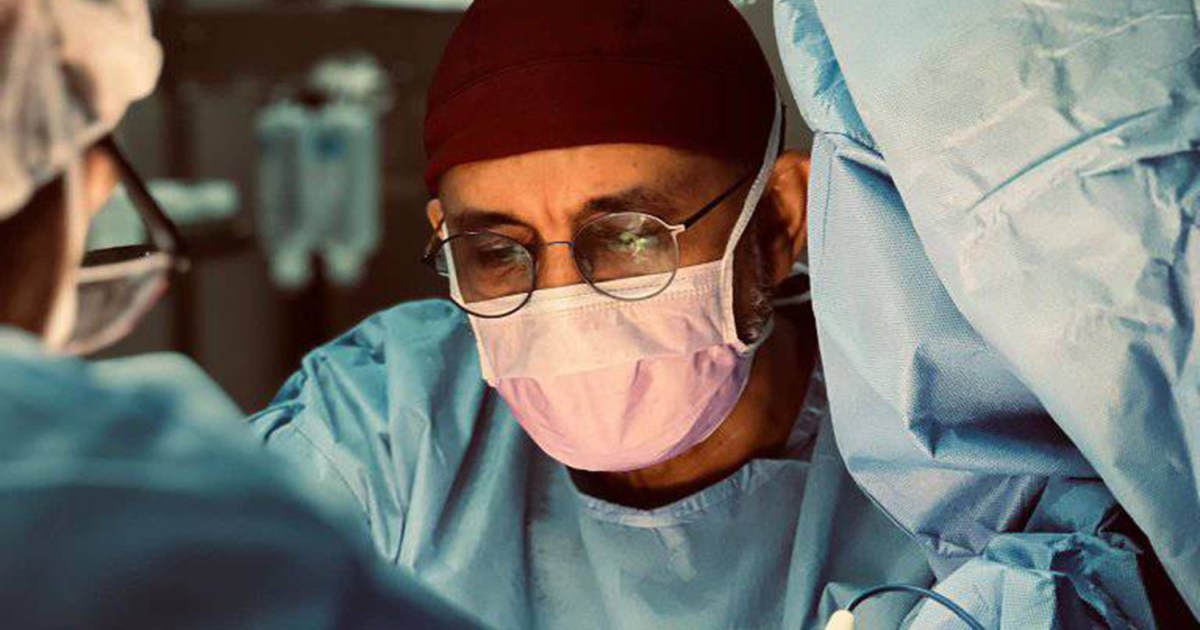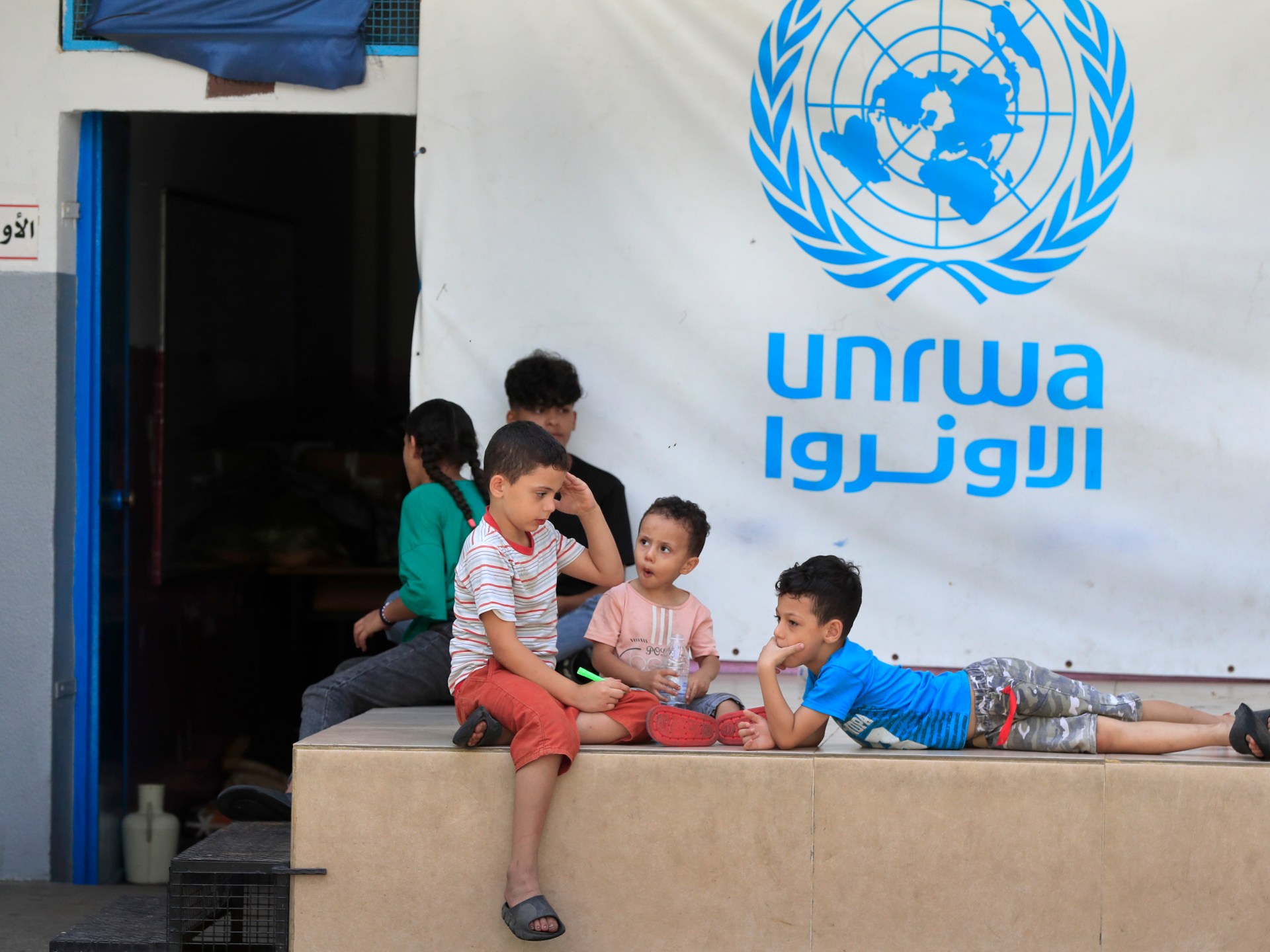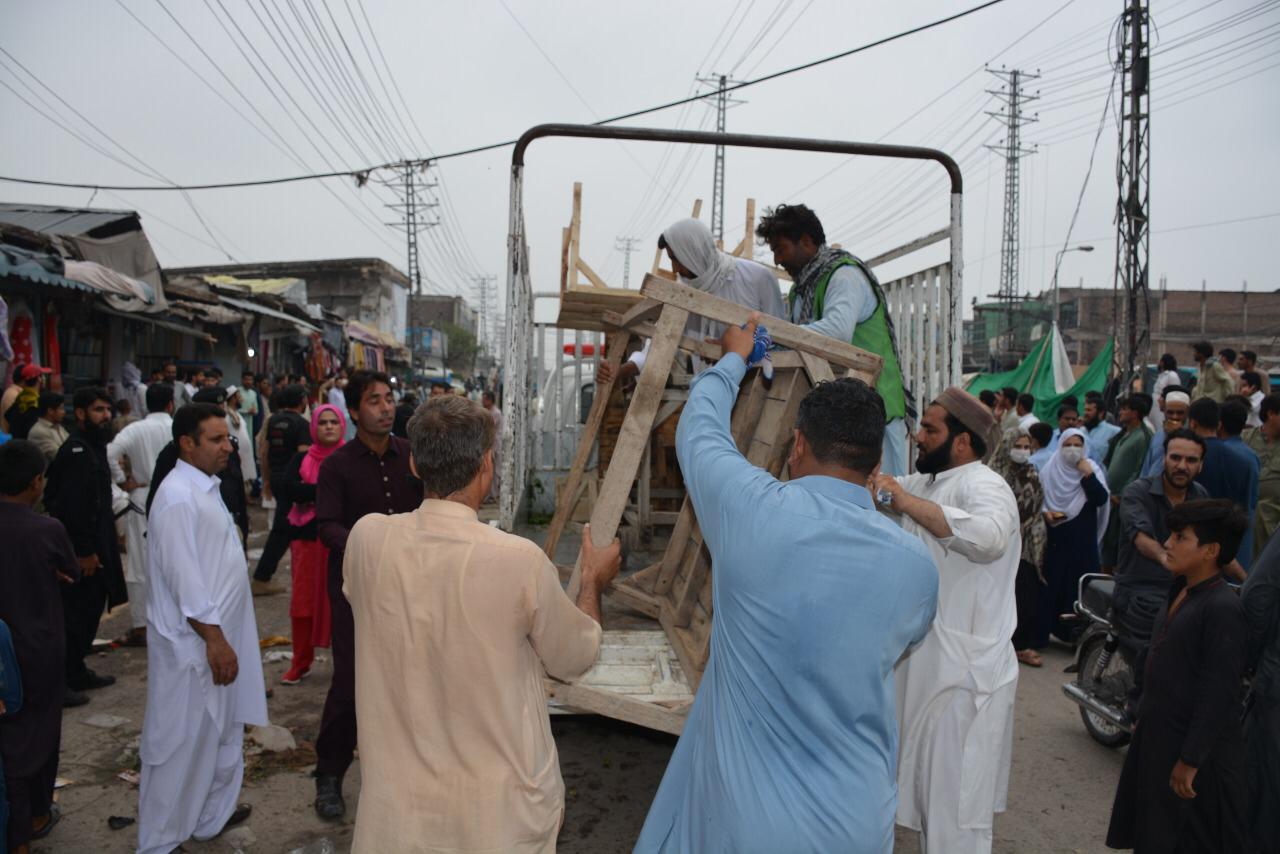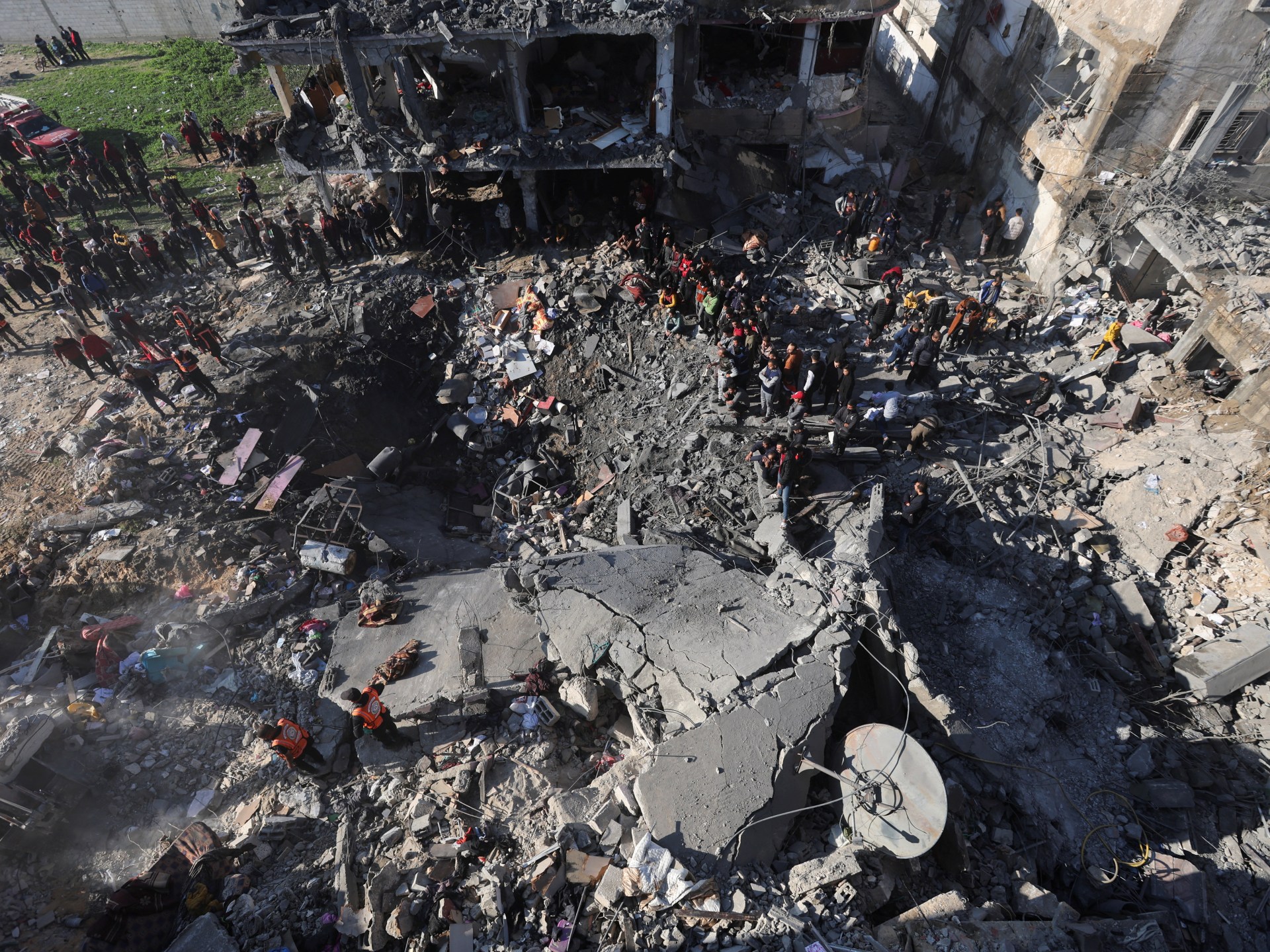‘It’s not human’: What a French doctor saw in Gaza as Israel invaded Rafah | Israel War on Gaza
Dr Zouhair Lahna has worked in conflict zones across the globe – Syria, Libya, Yemen, Uganda and Ethiopia – but he has never seen anything like the Israeli war on Gaza.
In those life-threatening situations, the Moroccan French pelvic surgeon and obstetrician said, there was a route to safety for civilians.
But on Tuesday, Israeli forces seized and closed Gaza’s Rafah border crossing with Egypt – the only escape for Palestinians from the war and the most important entry point for humanitarian aid.
“This is another injustice. … It’s not human,” Lahna said, shaking his head as he spoke to Al Jazeera from Cairo, Egypt, where he has been evacuated from the European Gaza Hospital in Khan Younis.
He laments having to leave his Palestinian colleagues behind.
“I am angry, troubled, upset … because I left some people. They are my friends. I was with them, these doctors, these people. …We eat together, we work together and now I left them in trouble. They have to move their families, look for a tent, look for water, for food,” he said.
Lahna has spent months volunteering in Gaza’s hospitals as part of missions organised by the Palestinian Doctors Association in Europe (PalMed Europe) and US-based Rahma International.
On the morning that displaced Palestinians in eastern Rafah were ordered to evacuate and before Israeli tanks rolled in, Lahna and his foreign colleagues received text messages from the Israeli army.
“The Israeli army, they know everything. They know everyone who is in Gaza and how to reach them. They told us to leave.”
The texts urged the foreign doctors to leave Gaza because the Israeli military would soon begin an operation in eastern Rafah.
A few hours later, Lahna and his counterparts from PalMed Europe and Rahma International were picked up by their organisations and taken to safety in Cairo.
“There were four doctors in the European Hospital, four in the Kuwaiti Hospital and two others,” he said. “We waited while they gave our names to the Egyptian and Israeli authorities, and finally, we got word to leave.”
As they were departing, leaflets from the Israeli military printed with the evacuation order fell from the sky along with missiles from Israeli warplanes.
People were in a panic as they headed north from Rafah towards Khan Younis or west towards the sea, Lahna recalled.
Collapse of a system
When asked about the conditions of the hospitals he worked in, Lahna has trouble describing what he saw.
He begins to speak, then pauses, apologising, pained by the number of sick, wounded and dying individuals who were brought in daily.
“It’s difficult for me to remember this,” he said slowly.
While the European Hospital has been spared from an Israeli raid, it has been receiving referrals from other overwhelmed hospitals.
It has also been a place of shelter for displaced people who try to find space wherever they can, including at the doors of patient rooms, in the building’s corridors, on the stairs and in the hospital’s garden.
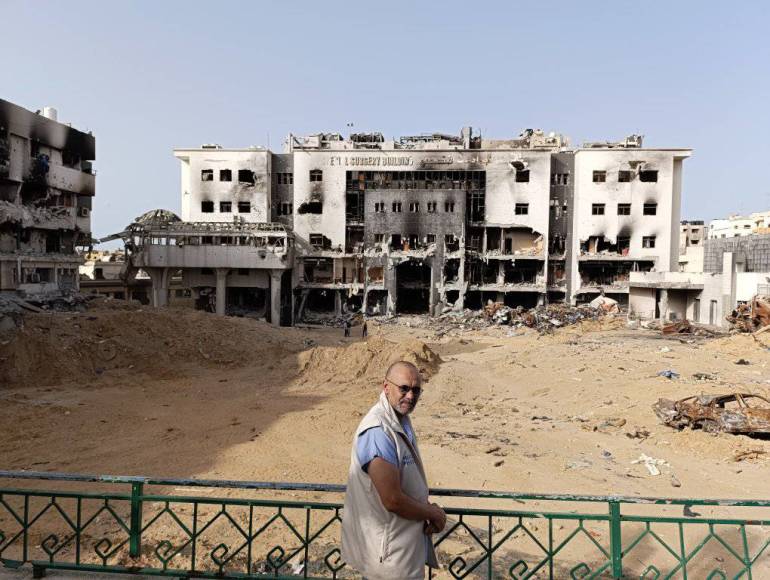
Before the European Hospital, Lahna and his team volunteered at Kamal Adwan Hospital in Gaza’s northern city of Beit Lahiya. He is among the few foreign doctors to have travelled to the area.
They worked there for a week, the longest Israeli authorities permitted them to be there, he said.
There, the situation was even more dire, the doctor said, exacerbated by what the World Food Programme says is a “full-blown famine” in northern Gaza.
In December, the hospital was the site of an Israeli raid when the military besieged and shelled it for several days. Displaced families had also been sheltering there and were rounded up alongside medical staff and personnel.
Gaza’s hospitals, the majority of which are no longer functioning, have also been the site of mass graves discovered after Israeli raids. Graves have been found in recent weeks in Nasser and al-Shifa hospitals along with 392 bodies.
Working for peace, not war
With the collapse of the healthcare system in Gaza, Lahna is determined to return and volunteer there once again but isn’t sure when that will be possible.
For now, he said, he will return to France to check in at his “other job” and spend time with his family, who may have had a harder time than he did because all they did was worry about him while he was in Gaza.
He is sure all of Rafah will soon be occupied by Israeli forces, which will be deadly for the hundreds of thousands of Palestinians there, he said.
“This world is blind,” Lahna said, dismayed that the Rafah incursion is likely to continue to occur despite warnings from the international community, which has not been able to stop Israel from committing mass atrocities, he said.
“Human rights is a joke. The United Nations is a big joke,” Lahna added.
He believes the war is as much a United States conflict as it is Israeli with the US approving an additional $17bn in aid to its top Middle East ally last month.
For Lahna, the protesting university students around the world, particularly in the US, who oppose Israel’s ongoing assault know the value of human rights.
Yet when it comes to Palestinians, he said, they are coming to realise that these values do not apply – and are increasingly becoming disillusioned with their elected officials and the state of the world.
That disillusionment is wearing on the doctor himself, but he said it has also strengthened his resolve to offer his expertise to people in warzones around the world, including Gaza.
Asked if he is worried about being arrested. tortured or killed for his work in the enclave, the surgeon barely bats an eye.
He said his time to die will come one day or another and if it happens while helping the vulnerable in Gaza, then that will be the time meant for him to depart.
“I am not more precious than Palestinian people,” Lahna said. “I am a humanitarian doctor. I work. I help people. [We] doctors come in for peace. We don’t come in for war.”
Check out our Latest News and Follow us at Facebook
Original Source

